Many graduates will use the knowledge they gained at university or college to start their own business. Enjoy this content and we hope it guides and inspires you to achieve success as an entrepreneur.
As an entrepreneur
5 inspiring stories of business success in SA
Ronnie Apteker
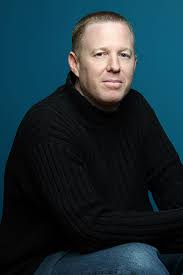
Ronnie Apteker who went against the “it can’t be done” mindset & opened the doors to a new business. Apteker’s stint as an entrepreneur began in the early 90s when he identified the opportunity for businesses to incorporate IT solutions with their business processes for real time solutions. His idea, Internet Solutions, was faced with challenges as corporate South Africa had just embraced the idea of a company website. Struggling to keep business afloat, Apteker sold a stake in his business to Dimension Data. Over the years, Apteker’s Internet Solutions business has thrived to become e-business service provider to 80% of the top 250 listed companies in South Africa.
Herman Mashaba

Herman Mashaba dropped out of university due to political unrest and made it happen. Mashaba found himself working for Spar in Pretoria as a Clerk after the shutting down of University of the North West as a result of political unrest. After 7 months at Spar, he left to join a hair care manufacturing business. He later on used the acquired skills to set up his own hair care manufacturing business under the name Black Like Me.
Raymond Ackerman

Raymond Ackerman lost his job, so he created his own business. Asked what his formula to success is, Ackerman replied “10% capital and 90% guts” which has now become one the famous inspirational business quotes. Having just lost a job with Checkers, Ackerman’s spirit was not dampened. He got back up and give it another go. Upon arriving back in Cape Town, he commenced negotiations with Jack Goldin who, at the time, owned four Pick ‘n Pay outlets. In no time, Raymond’s business was competing with that of his previous employers. To date, Pick ‘n Pay is one of the biggest Fast-Moving Consumable Goods retail chain in Southern Africa.
Tokyo Sexwale
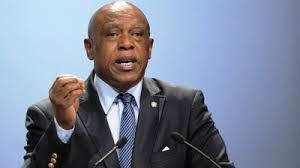
Tokyo Sexwale went from exile to prison and on to success. Sexwale was born in the township of Soweto. His career trajectory has been quite a political one. He was in exile until 1976 and returned to South Africa thereafter. Soon after his return to S.A, he was arrested by the apartheid government for his political activism. While imprisoned, Tokyo attained a BCom degree with the University of South Africa. He went on to establish Mvelaphanda Holdings, a company reportedly to be the third biggest in the diamond industry locally, after De Beers and JFPI Corporation.
Patrice Motsepe
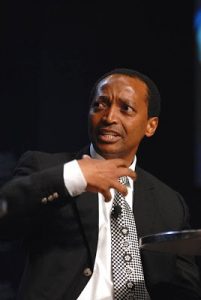
Patrice Motsepe used skills acquired from his father to become a successful businessman. Motsepe has frequented Forbes’s list for the richest businessmen in South Africa more than he can recall. His business acumen is a result of the years spent, as a youngster, working for his father’s store and beer hall. That experience exposed him to the lives of mine workers who bought their daily supplies from his father’s store. After completing his matric, he went to study law and has worked as an Attorney. In 1994 he founded the mine services company “Future Mining” and in 1997 he launched ARM gold, which in the early 2000s merged with Harmony. His acquisition also includes a 51% stake in the football club Mamelodi Sundowns.
Extracts from an article by Cari James
I did it my way

Writing a business plan
There is an old saying “if you fail to plan – you plan to fail”.
A business plan is an important planning process and should be carefully completed before trying to start any new venture. It should provide a clear and compelling guide for building a successful business and serve to persuade others, including banks to invest in what you are creating.
Before writing a business plan, you must:
- Analyze the potential markets for your business idea
- Identify your company’s initial needs – financial and operational
- Prepare product samples
- Research possible locations for your business
- Determine your start-up costs
- Identify potential investors
Then prepare the business plan:
Organize all the relevant information about your business in a simple document called the Business Plan. This document should include:
- a title page and table of contents,
- an executive summary (a 1-page explanation of the business which is the main appeal to the investors),
- a general company description,
- details on products and services,
- a marketing plan (how will you build the brand and communicate with clients?)
- an operational plan (how does the work get done?)
- a financial plan (both the “start-up” and the monthly financial needs)
There is no time like the present…get out there and start that business.
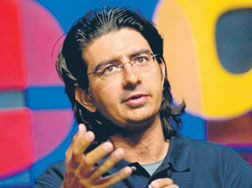
The Pierre Omidyar way.
In 1995, a computer programmer started auctioning off stuff on his personal website. AuctionWeb, as it was then known, was really just a personal project, but, when the amount of web traffic made it necessary to upgrade to a business Internet account, Omidyar had to start charging people fees. He actually hired his first employee to handle all the payment checks. The site is now known as eBay.
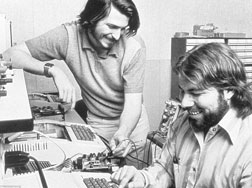
The Steve Wozniak and Steve Jobs way.
While they had been friends since high school, the two college dropouts gained considerable exposure to the computer world while working on game software together on the night shift at Atari. Then of course they established Apple Inc.

A list of good small business ideas
As the high rate of unemployment is at peak, we have compiled a list of good small business ideas to help you choose which will be suitable to you.
We have;
Mobile restaurant – this is where you open a restaurant in a mobile and you can open it anywhere.
Handcraft Classes – this is where you use your hands to make sculptures and furniture and sell them to furniture stores.
Tutor – many parents wants tutors to help their kids with their studies, more especially for Mathematics and science.
Cleaning and babysitter/nanny – this business will help those career parents with new born babies.
Catering – you can cater for events and other private parties. You can plan and arrange events for organizations.
Sales of Food Products – this business is where you buy food in bulk and sell them to people or stores.
Computer Business Center – this is a business whereby you will teach people basic computer skills.
Tailor – this business focuses on making clothes.
Sketch Artist – you make drawings or even paintings and sell them.
Laundry Business – do people’s laundry at any given time at your own home.
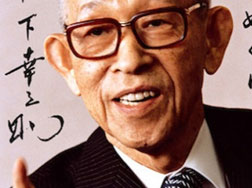
The Konosuke Matsushita way.
In Japan in 1917, a 23-year-old apprentice at the Osaka Electric Light Company with no formal education came up with an improved light socket. His boss wasn’t interested so young Matsushita started making samples in his basement. He later expanded with battery-powered bicycle lamps and other electronic products. Matsushita Electric, as it was known until 2008 when the company officially changed its name to Panasonic, is now worth $66 billion
SA’s top young entrepreneurs to watch
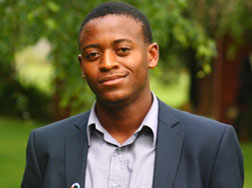
Ludwick Marishane
Time Magazine named him one of the “Top 30 under 30” that are changing the world in 2013. Having invented “DryBath” at the age of 17, a product set to revolutionise sanitation in impoverished areas he then founded Headboy Industries.
Marishane was rated “Best student entrepreneur in the world” at the Global Student Entrepreneurs Awards in 2011.
Google listed him as one of the 12 brightest young minds in the world in 2011.
This young innovator holds a Bachelor of Business Science, majoring in Finance & Accounting, from the University of Cape Town.
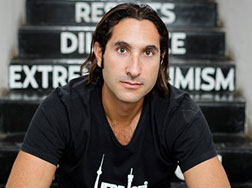
Jonathan Liebmann
Liebmann is a property entrepreneur and is behind the famous Maboneng Precinct, which is reviving the City of Johanneburg to its former glory. With several buildings running under his name one cannot help but think that he is fast becoming the future property mogul of South Africa.

Luvuyo Rani
Alongside his brother Lonwabo, Luvuyo founded Silulo Ulutho Technologies – a company servicing youth and adults in the Western Cape and Eastern Cape provinces, equipping them with much-needed computer skills. The company’s overall vision is to empower all African citizens to become part of the digital community.

Rapelang Rabana
Rabana is a co-founder of Yeigo Communications, a major software company based in Cape Town. She co-founded the business alongside Wilter du Toit and Lungisa Matshoda shortly after completing her studies at the University of Cape Town in 2005. Amongst some of her accolades Rapelang was selected as a “Global Shaper” by the World Economic Forum and was invited to join the Annual Meeting in Davos 2012. She is also an Ambassador and Juror for the United Nations World Youth Summit Awards, and to top it all, she was also listed by Forbes on “Top 30 under 30” – Africa’s Best Young Entrepreneurs.
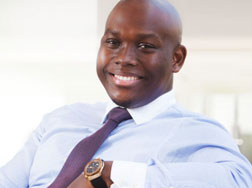
Vusi Thembekwayo
Vusi is ranked first in Africa for public speaking. This vibrant motivational speaker has graced our televisions screens playing advisory roles in various programmes, including SABC’s One Day Leader. His latest project is being one of the panel of the South African version of British investor programme “Dragon’s Den”.
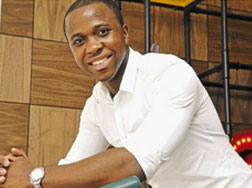
Siyabulela Xuza
Xusa is an example of the high calibre of scientists South Africa needs. This young South African scientist has had NASA name a planet after him, in honour of his work in developing a record-breaking rocket and creating safer, more energy-efficient rocket fuel. The 25-year-old from Mthatha in the Eastern Cape is currently studying at Harvard University in the US in a bid to develop new energy technology, which he hopes will in turn help the planet.
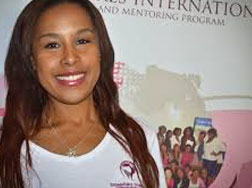
Ezlyn Barends
Ezlyn is the Managing Director of Dad Fund, a non-profit organisation with a purpose of shaping the future of young leaders in South Africa. She holds a Bachelor of Business Administration in Entrepreneurship & Marketing and a Higher Diploma in Marketing Communications. Currently based in the United Kingdom and doing her MBA at the Henley Business School, Barends was named one of the Mail & Guardian 200 Young South Africans for 2014.
Source: Bongani Mtlhavani
